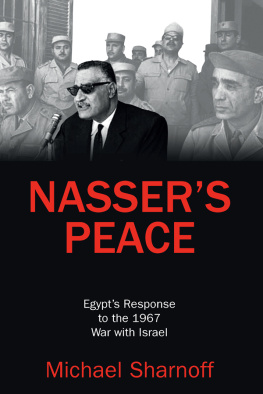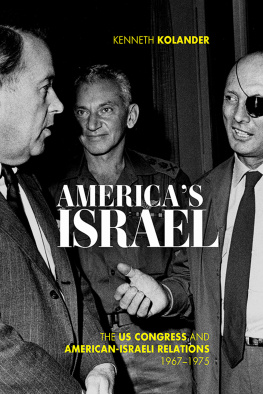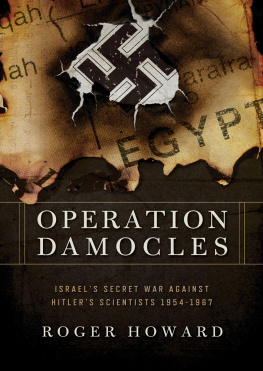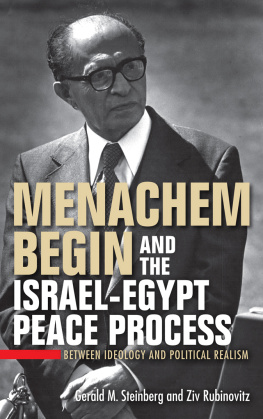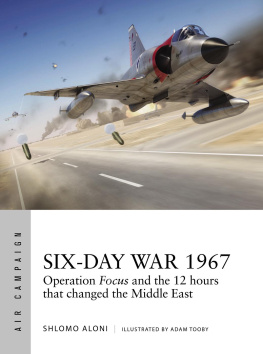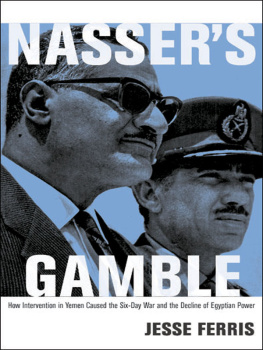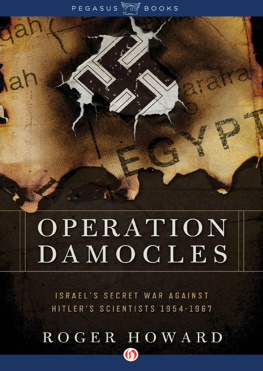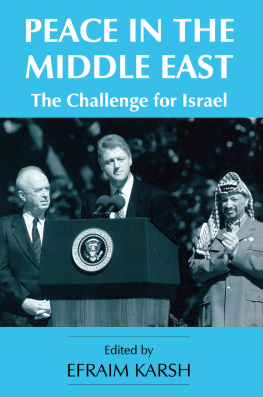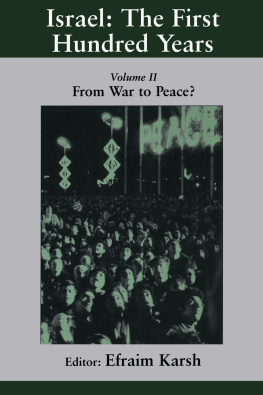NASSERS PEACE
NASSERS PEACE
Egypts Response to the 1967 War with Israel
Michael Sharnoff
Copyright 2017 by Transaction Publishers
Transaction Publishers is an imprint of the Taylor Francis Group, an informa business
All rights reserved under International and Pan-American Copyright Conventions. No part of this book may be reproduced or transmitted in any form or by any means, electronic or mechanical, including photocopy, recording, or any information storage and retrieval system, without prior permission in writing from the publisher. All inquiries should be addressed to Taylor & Francis, 711 Th ird Avenue, New York, NY 10017, USA.
This book is printed on acid-free paper that meets the American National Standard for Permanence of Paper for Printed Library Materials.
Library of Congress Catalog Number: 2016048822
ISBN: 978-1-4128-6515-9
Printed in the United States of America
Library of Congress Cataloging-in-Publication Data
A catalog record for this book has been requested
Contents
I am greatly indebted to the following individuals for their advice and assistance: Efraim Karsh, Rory Miller, Michael Kerr, Jehan Sadat, Linda L. Woolridge, Doron Avi-Ad, Israel Gershoni, Miladin Miloevi, Bruno Derrick, Ian Strawbridge, Lynsey Robertson, Mike Walker, Youssef Ziedan, Reem Saad, Khaled Fahmy, Judith Vera, Luisa Parrado, Fred Burchsted, Bradley L. Schaffner, Mark Kramer, Harold M. Leich, Joel Gordon, John Buchtel, Scott S. Taylor, Lynsey Robertson, Ella Molenaar, and Kamel Labidi.
I am especially grateful to the staff at the Maughan Library, the British Library of Political and Economic Science, the School of Oriental and African Studies Library, the British Library, The National Archives, the Library of Congress in Washington, D.C., and the National Archives at College Park, Maryland.
Finally, I wish to thank my family and friends for all their love and support. Any errors in the final manuscript, needless to say, are mine alone.
In this study, Arabic, Hebrew, and Russian names and words commonly appear as they do in the popular English format. Thus, Gamal Abdel Nasser instead of Jamal bd al-Nasir and Cairo instead of al-Qahira. Special thanks to Nick Noroditsky for translation assistance with Russian archival material into English. Arabic and Hebrew transliterations in the footnotes adhere to the literary style of the International Journal of Middle East Studies. I alone am responsible for any errors.
Afro-Asian Peoples Solidarity Organization (AAPSO)
Arab Socialist Union (ASU)
British Broadcasting Corporation (BBC)
British Member of Parliament (MP)
British Petroleum (BP)
Bureau of Intelligence Research (INR)
Bureau of Near Eastern Affairs (NEA)
Central Intelligence Agency (CIA)
Communist Party of the Soviet Union (CPSU)
Front for the Liberation of Occupied South Yemen (FLOSY)
MikoyanGurevich Soviet Military Aircraft (MiG)
National Liberation Front (NLF)
North Atlantic Treaty Organization (NATO)
PalestineLiberation Army (PLA)
Palestine Liberation Organization (PLO)
Surface-to-air missile (SAM)
Union of Soviet Socialist Republics (USSR)
United Arab Republic (UAR)
United Kingdom (UK)
United Nations (UN)
United Nations Emergency Forces (UNEF)
United Nations General Assembly (UNGA)
United States (US)
We do not accept any method of coexistence with Israel. Today the issue is not the establishment of peace between the Arab states and Israel. The war with Israel is in effect since 1948.
Gamal Abdel Nasser1
A solution by war is unacceptable We can accept any political solution, personally I agree to anything but not to the passage of Israeli ships through the Canal.
Gamal Abdel Nasser2
Nasser is a progressive man, he sees many problems, but he is afraid to come up with them openly.
Josip Broz Tito on Nasser3
The above-mentioned contradictory quotations by and about Egyptian President Gamal Abdel Nasser underscore the numerous challenges and often frustrating attempts the United States (US) and the Soviet Union encountered at brokering peace between Egypt and Israel. Peace by definition is a subjective concept. How one leader views peace may not necessarily be accepted as genuine by another. For instance, what Nasser would often say in Arabic to an Arab audience would contrast significantly with what he would say in English to a Western audience. To acquire the most comprehensive account of Nassers attitudes and responses to peace, one must study what he said to the Americans, the British, the Soviets, and Arabs, as well as what he said publicly versus what he said privately.
In addition, Nasser used various terms to describe his notion of peace including political solution; political action; and nonbel-ligerency none of which implied recognizing Israels right to exist nor necessitated signing a peace treaty. Israel and the US rejected this interpretation, arguing that real peace constituted an end of conflict, mutual recognition, followed by a comprehensive peace treaty. To gain a clearer understanding of what Nasser thought and to subsequently evaluate his responses, it is crucial to thoroughly examine his speeches, interviews, television and radio broadcasts, and memoirs. Official government publications also reveal profound insights because they articulate narratives Nasser sought to promote.4
While much scholarship has been devoted to Nasser, there has been surprisingly little in-depth analysis of how he viewed peace with Israel specifically in the postwar context. The central objective of this study is to introduce new evidence from primary sources to create an updated, comprehensive, and more lucid understanding of Nassers responses to peace from June 10, 1967, through the passing of United Nations (UN) Resolution 242 on November 22, 1967. UN Resolution 242 has since served as the foundation for the internationally recognized land for peace paradigm, which facilitated Egyptian-Israeli (1979) and Jordanian-Israeli (1994) peace treaties. Yet as of writing this book in summer 2016, a comprehensive Arab-Israeli settlement remains elusive. New evidence about Nasser introduced in this book seeks to determine what, if any, potential opportunities for ending Egypts conflict with Israel existed immediately after the 1967 War. Consequently, an in-depth exploration and analysis of these perceptions and responses of peace hope to provide greater insights in the areas of conflict resolution, diplomacy, and the challenges of Arab-Israeli peacemaking.
I have opted to find as many primary sources from Nasser himself. Unfortunately, Nasser did not leave behind diaries or memoirs pertaining to his vision of peace from 1967 to 1970. His only diaries and memoirs, Tahrir Misr: Falsafat al-Thawra (Egypts Liberation: Philosophy of the Revolution), Mudhakarat min Harb Filastin al-Lila (Memoirs of the First Palestine War), and Nahu al-Huriyyah (Towards Freedom), were published in the 1950s. While these texts remain highly valuable for scholars to gain greater depth into Nassers thinking, they can only serve as a guide to contrast the evolution of Nassers concept of peace after 1967.


